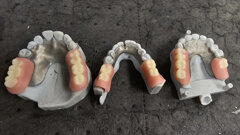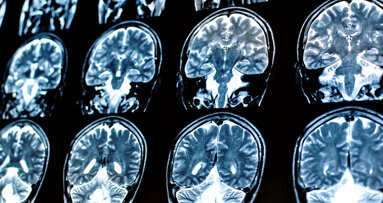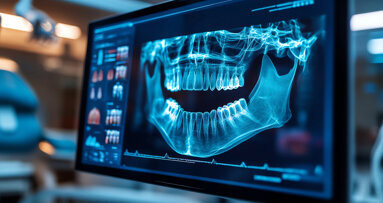COLUMBIA, S.C., US: Growing evidence continues to demonstrate the far-reaching impact of oral health on systemic well-being. Just recently, two new studies have strengthened the association between periodontal disease, dental caries and cerebrovascular health, suggesting that maintaining healthy teeth and gingivae may help reduce vascular injury in the brain and lower the risk of stroke.
The first study found that adults with periodontal disease had significantly greater signs of microvascular brain injury. Additionally, the second study reported that participants with both caries and periodontal disease had a higher incidence of ischemic stroke. Both studies highlight the importance of improving oral health in order to mitigate vascular risk factors that can affect the brain.
Previous research has linked periodontitis to a higher risk of ischemic stroke. Likewise, cerebral small vessel disease has been independently associated with ischemic stroke. Therefore, the researchers in the first study investigated whether the two diseases are independently associated. They took MRI brain scans of 1,143 adults with an average age of 77 to look for signs of cerebral small vessel disease—damage to the brain’s small blood vessels that can appear as white matter hyperintensities (bright spots on MRI linked to poor blood flow), cerebral micro-bleeds or previous lacunar infarcts. These brain changes become more common with age and are associated with increased risk of stroke, cognitive impairment and mobility issues.
According to the findings, the participants with periodontal disease had a statistically significantly greater volume of white matter hyperintensities. The difference in volume (as a percentage of brain volume) between those with and without periodontal disease was small but clinically meaningful. These lesions were more extensive among participants with periodontal disease even after adjusting for major vascular risk factors. However, no significant links were found between periodontal disease and cerebral micro-bleeds and lacunar infarcts once confounding factors had been taken into account.
“If future studies confirm this link, it could offer a new avenue for reducing cerebral small vessel disease by targeting oral inflammation,” senior author Prof. Souvik Sen, chair of the neurology department in the School of Medicine Columbia at the University of South Carolina, said in a press release. “For now, it underscores how dental care may support long-term brain health,” he concluded.
The study, titled “Periodontal disease independently associated with white matter hyperintensity volume: A measure of cerebral small vessel disease”, was published online in the December 2025 issue of Neurology.
Caries and periodontal disease may increase stroke risk
In the second study, involving 5,986 adults with an average age of 63, the researchers examined whether periodontal disease in combination with dental caries or alone was associated with later risk of ischemic stroke. The participants had no prior history of stroke at baseline and were followed for about two decades to determine which participants had experienced a stroke.
The findings showed that stroke incidence followed an oral health gradient: being lowest among the participants with healthy mouths and highest among the participants with both periodontal disease and caries. After the researchers adjusted for major vascular risk factors, participants with both periodontal disease and caries had nearly double the risk of ischemic stroke compared with those with good oral health. Additionally, those with periodontal disease alone had a significantly elevated risk.
“The findings indicate that periodontitis and caries together are independently linked to higher risk of ischemic stroke. For dental professionals, this underscores the systemic relevance of comprehensive preventive care.” Prof. Sen, who was also the senior author of the second study, said in a press release.
The study, titled “Combined influence of dental caries and periodontal disease on ischemic stroke risk”, was published online in the December 2025 issue of Neurology.
Topics:
Tags:
Because the long-term success of implant treatment depends on various factors, including oral hygiene, lifestyle habits and health conditions, it is vital ...
DALLAS, US: An increased burden of cerebrovascular disease could be connected to a genetic predisposition for poor oral health, according to a new study ...
NEW YORK, U.S.: Older adults with more harmful than healthy bacteria in their periodontal tissue are more likely to have evidence for amyloid beta— a key ...
STONY BROOK, N.Y., US: The applicability and efficacy of artificial intelligence (AI) within dentistry appears to be limitless. With each passing day, ...
MECCA, Saudi Arabia: Affecting over 70 million people globally, epilepsy is a disorder that may give dental professionals pause, as the treatment of ...
Live webinar
Tue. 17 February 2026
12:00 pm EST (New York)
Live webinar
Wed. 18 February 2026
9:00 am EST (New York)
Dr. Anna Lella, Ms. Francesca Nava
Live webinar
Wed. 18 February 2026
12:00 pm EST (New York)
Prof. Dr. João Caramês CODE expert, Dr. Robert Gottlander DDS
Live webinar
Mon. 23 February 2026
3:00 am EST (New York)
Ass. Prof. Elizabeth Shick, Dr. Zehra Yonel
Live webinar
Tue. 24 February 2026
1:00 pm EST (New York)
Prof. Dr. Markus B. Hürzeler
Live webinar
Tue. 24 February 2026
3:00 pm EST (New York)
Prof. Dr. Marcel A. Wainwright DDS, PhD
Live webinar
Wed. 25 February 2026
11:00 am EST (New York)
Prof. Dr. Daniel Edelhoff



 Austria / Österreich
Austria / Österreich
 Bosnia and Herzegovina / Босна и Херцеговина
Bosnia and Herzegovina / Босна и Херцеговина
 Bulgaria / България
Bulgaria / България
 Croatia / Hrvatska
Croatia / Hrvatska
 Czech Republic & Slovakia / Česká republika & Slovensko
Czech Republic & Slovakia / Česká republika & Slovensko
 France / France
France / France
 Germany / Deutschland
Germany / Deutschland
 Greece / ΕΛΛΑΔΑ
Greece / ΕΛΛΑΔΑ
 Hungary / Hungary
Hungary / Hungary
 Italy / Italia
Italy / Italia
 Netherlands / Nederland
Netherlands / Nederland
 Nordic / Nordic
Nordic / Nordic
 Poland / Polska
Poland / Polska
 Portugal / Portugal
Portugal / Portugal
 Romania & Moldova / România & Moldova
Romania & Moldova / România & Moldova
 Slovenia / Slovenija
Slovenia / Slovenija
 Serbia & Montenegro / Србија и Црна Гора
Serbia & Montenegro / Србија и Црна Гора
 Spain / España
Spain / España
 Switzerland / Schweiz
Switzerland / Schweiz
 Turkey / Türkiye
Turkey / Türkiye
 UK & Ireland / UK & Ireland
UK & Ireland / UK & Ireland
 Brazil / Brasil
Brazil / Brasil
 Canada / Canada
Canada / Canada
 Latin America / Latinoamérica
Latin America / Latinoamérica
 USA / USA
USA / USA
 China / 中国
China / 中国
 India / भारत गणराज्य
India / भारत गणराज्य
 Pakistan / Pākistān
Pakistan / Pākistān
 Vietnam / Việt Nam
Vietnam / Việt Nam
 ASEAN / ASEAN
ASEAN / ASEAN
 Israel / מְדִינַת יִשְׂרָאֵל
Israel / מְדִינַת יִשְׂרָאֵל
 Algeria, Morocco & Tunisia / الجزائر والمغرب وتونس
Algeria, Morocco & Tunisia / الجزائر والمغرب وتونس
 Middle East / Middle East
Middle East / Middle East









































To post a reply please login or register